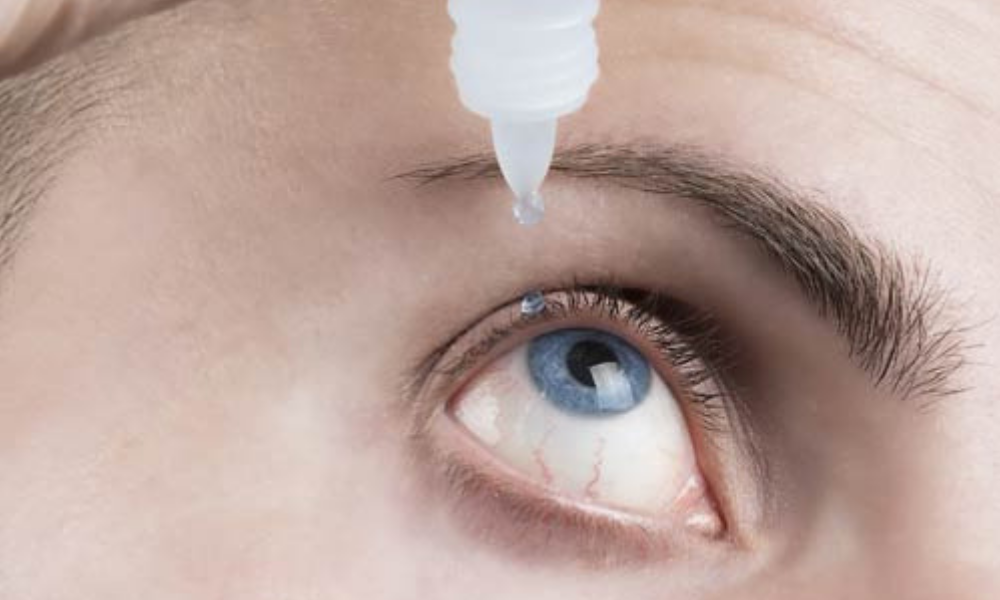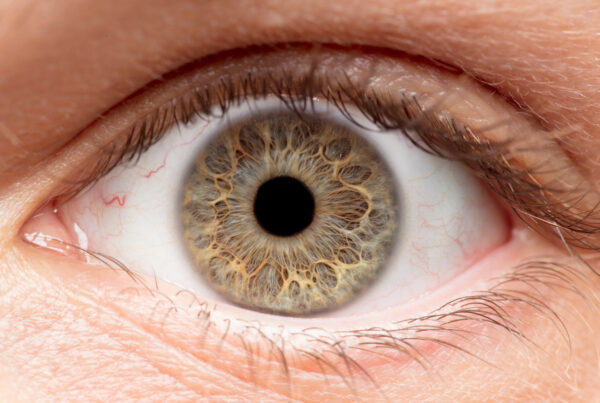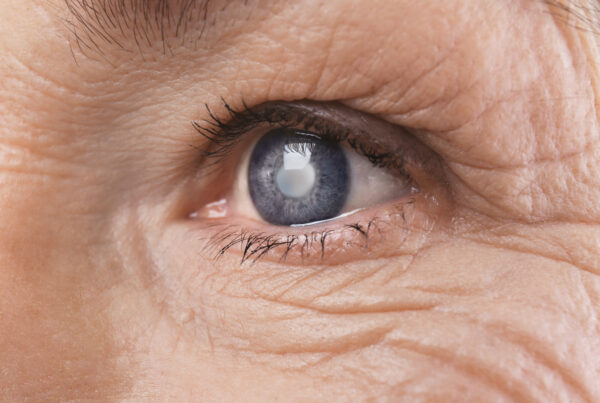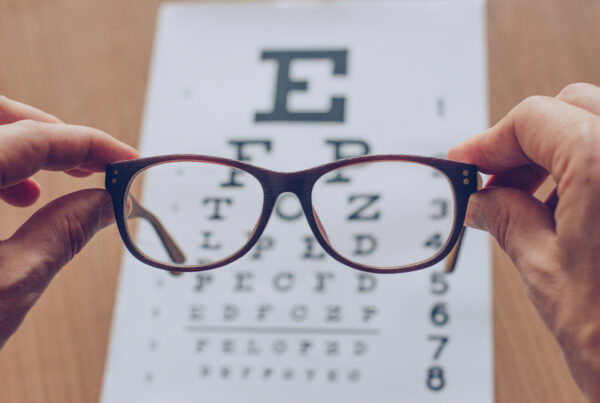
The hallmark symptom of ocular allergy is itching. Lots of other things can make your eye red, scratchy, watery, blurry, and crusty, but if it’s itching, that’s allergy! There are lots of different ways to treat eye allergies and understanding what causes your allergy helps you know what the best treatment for you might be.
The white part of your eye (the sclera) and the inside of your eyelids are lined with a clear skin layer (the conjunctiva) that has lots of tiny blood vessels running through it. Usually the blood cells don’t run through those vessels, so it looks clear and your eye has a white and quiet look. But if something irritates your eye, the blood cells flood into those tiny vessels and your eye looks pink or even red. There are special cells (mast cells) in that skin layer that store the hormone that opens the blood vessels and allows the flow of blood cells into the vessels. That hormone (histamine) also makes your eye itch and water!
The things that irritate your eye can be particles in the air (pollen, ragweed, mold, etc.) or things that you put into your eye (sprays, cosmetics, medicines, etc.) Some people are more sensitive to these things than other people, and that’s why some people have more problems with allergy.
So, the first line of treatment for eye allergies would be to remove whatever you are sensitive to from your eye. Sometimes eye wash, artificial tears, or just splashing clean, cold water can wash the irritation away. If it’s a cosmetic, hair spray, cologne, or medication that triggers the allergy, you just stop using it to stop the problem. That’s not an easy solution if you have a seasonal allergy and the air in the environment is what irritates your eyes. Short of moving to the desert or staying in an air-conditioned room with a good air filter, that’s not going to solve this problem.
Eye drops medications can be a good answer to this. The pills people take for allergies may work well for nasal congestion and sneezing but are not particularly strong for the itchy eyes. Over- the-counter allergy eye drops work well for mild eye allergies. They are safe to use even if you have other eye problems, and they rarely have any side effects. If you try them, and they work, nothing more is needed.
There are prescription eye drops specifically for ocular allergy treatment. These are stronger treatment for itching and generally last longer than over-the-counter drops. Some of these include generic names like olopatadine, cromolyn, nedocromil, iodoxamide, alcaftadine, ketotifen, azelastine, epinastine, emedastine, and bepotastine. These medications work by stabilizing the mast cells so they don’t release histamine to make your eyes itch. Others work by blocking the effects of the histamine that has already been released from the mast cells. They generally have no bad side effects and can be used in eyes that have other problems without serious risk.
The most potent treatment for ocular allergy is topical corticosteroid eye drops (prednisolone, dexamethasone, loteprednol, difluprednate, fluoromethalone, rimexolone). These are very strong but have serious side effects when used in high doses or for long periods of time. If you need to take steroid eye drops, if may be important for an eye doctor to check your eye for glaucoma during the course of your treatment. When you have really bad allergy symptoms, it is helpful to get the initial control of the itching with steroid eye drops, and then switch to the less risky prescription eye drops to maintain the control.
There are some eyedrops (ocular NSAIDs) that give non-specific control of eye irritation, and they can sometimes be helpful for itching, but are more particularly good for scratching and other irritation.



